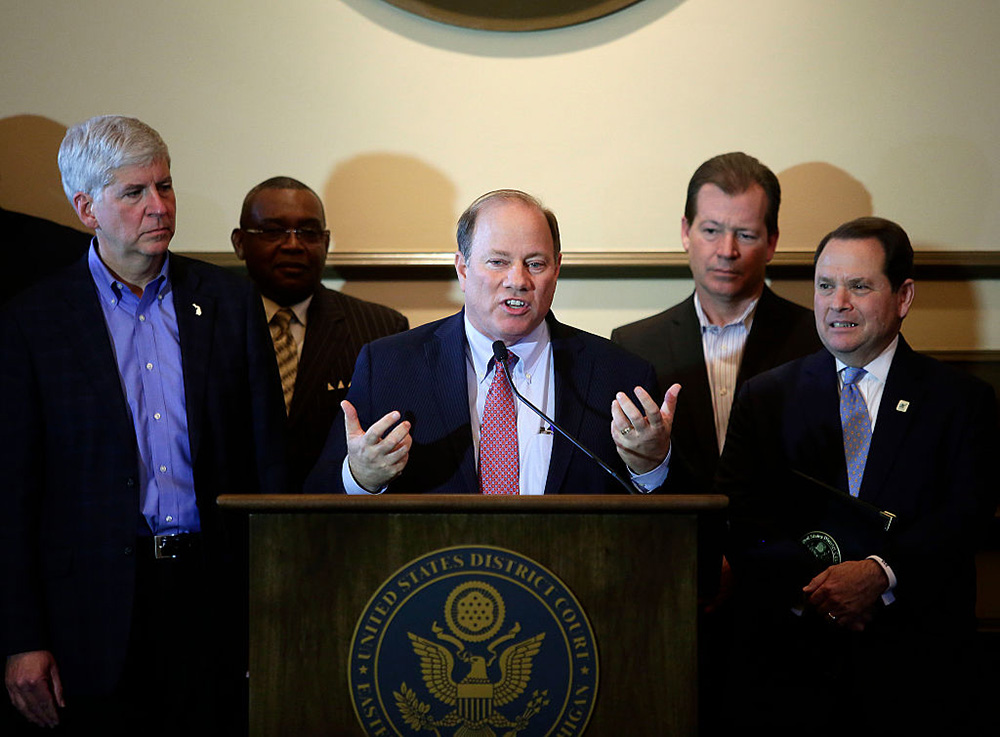Under Mike Duggan, Detroit has emerged from bankruptcy and streetlights are working again.
Before Mike Duggan’s election in 2013, Detroit hadn’t had a white mayor since 1974. The city was on the skids. The cops did not come when you called them. The streetlights didn’t work. Abandoned homes proliferated as residents quit Motown in droves. The city’s population has declined by more than half since the 1950s, and Detroiters, more than 80% of whom are black, wanted a change.
Today, Detroit continues to face more than its fair share of challenges—only two cities in the U.S. had a higher murder rate last year, for example. Still, the city is making progress. Detroit has emerged from bankruptcy protection. The streetlights are working again. Many of those vacant homes have been demolished or are now occupied, and the response time for 911 calls has improved. Mr. Duggan won a second term last week in the city’s nonpartisan election by beating Coleman Young II, who just happens to be son of the city’s first black mayor.
Mr. Young and his supporters tried to make the campaign about Mr. Duggan’s race instead of his record, and they weren’t subtle about it. A political ad for Mr. Young ended with the message: “It’s as simple as black and white.” During a televised debate, Mr. Young told viewers, “It’s time to take back the motherland for the people.” Maybe another time, said voters. Mr. Duggan was re-elected, 72% to 27%.
Detroit is not the only majority-black city that has grappled with electing nonblack leaders in recent years. In 2010, Mitch Landrieu became the first white mayor of New Orleans in almost 40 years. Last year, Memphis made Jim Strickland that city’s first white mayor since 1991. Next month, Atlanta will hold a runoff mayoral election between two City Council members, Keisha Lance Bottoms and Mary Norwood. Ms. Bottoms is black and has the backing of the current mayor, Kasim Reed, who is term-limited. Ms. Norwood, who is white, lost a mayoral election to Mr. Reed in 2009 by about 700 votes.
Read the entire piece at The Wall Street Journal
______________________
Jason L. Riley is a senior fellow at the Manhattan Institute, a columnist at The Wall Street Journal, and a Fox News commentator.
This piece originally appeared in The Wall Street Journal
